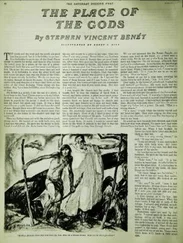D.J.McIntosh
the WITCHof
BABYLON

In memoriam:
Major General Nicola Calipari and Mazen Dana, a gifted journalist
In War, truth is the first casualty.
—AESCHYLUS, 525–456 B.C.
The Witch of Babylon is Book One of the Mesopotamian trilogy.
It takes place in the month of August, blessed by Shamash, Assyrian god of the sun.
Author’s Note
In 1922 a centuries-old scientific quest was finally solved. At the Sarcelles Gas Works, in the presence of two eyewitnesses, legendary French alchemist Eugène Canseliet succeeded in converting one hundred grams of lead into gold. He never shared his secret and the formula remains a mystery.


Historical Note
Perched on an arc of the Tigris River, Nineveh was once the star in the crown of the great Assyrian empire. Immense walls, six feet thick at their narrowest point and eight miles long, with fifteen magnificent gates, fortified the city. An aqueduct from the foothills of the Taurus Mountains brought water to the glorious temples, libraries, palaces, and gardens within.
Nineveh’s splendor did not last. In 612 B.C., Cyaxares, King of the Medes, supported by Babylonians from the south and Black Sea region tribes, laid siege to the city. In short order Nineveh fell. It was burned, sacked, and abandoned, never to rise again.
Through the centuries, dust from the surrounding plain blew across the ruined capital to form a mound, or tell, that could be seen for many miles. Nineveh disappeared. Over time it was erased from human memory and became a lost city.
In the mid-1800s French diplomat Paul-Émile Botta, British explorer Sir Austen Henry Layard, and Iraqi archaeologist Hormuzd Rassam excavated what had become known as the Kuyunjik mound. They unearthed remarkable objects—monumental sculptures of human-headed, winged bulls, elaborate friezes, and an entire library of clay tablets.
Barely noticed among these remarkable pieces was a simple basalt engraving. Little did anyone realize then, this would prove to be the most spectacular find of all.
Prologue
The Gods have abandoned us,
like migrating birds they have gone.
[Our city] is destroyed, bitter is its lament.
The country’s blood now fills its holes
like hot bronze in a mold,
bodies dissolve like fat in the sun.
Our temple is destroyed,
smoke lies on our city like a shroud,
blood flows as the river does.
The lamenting of men and women,
sadness abounds,
[Our city] is no more.
Hours before the final attack few believed the city would fall. How could the proud gates of Ishtar, those strong bridges spanning the Tigris, be breached? Were not the nation’s soldiers visible everywhere? Was not the palace, mirrored by the river’s serene waters, well defended? Did the ruler not promise all was well?
And yet on the ninth day of the month of Nissan, a time well chosen by the invaders to avoid the brutal heat of summer, the city did fall, crushed as easily as the delicate shell of a baby bird. Soldiers fled, threw off their battle dress, and hid among the people. Women gathered their children and cowered in dark rooms. Fires raged, turning homes to cinders. Flames gorged on the bountiful banquet of papyrus and parchment scrolls in the great library. Bodies lay everywhere, unclaimed in the streets, floating down the river like drowned and bloated livestock. Cages of exotic animals and birds kept for the people’s pleasure were wrenched open, the animals stolen and butchered for food. Statues of the ruler were desecrated; the man himself was nowhere to be seen.
War’s twin sister, plunder, went on a rampage. Neither the meager possessions of ordinary citizens nor the splendid hall of treasures was spared. Swarming like a colony of ravens fighting over the same piece of flesh, the pillagers stole precious ivories, necklaces of chalcedony and lapis, temple statues, and alabaster vases. One man smashed the head of a terracotta lion from Harmel’s temple. Another sat cross-legged on the floor, stripping inlay from the Lyre of Ur.
By April 14, 2003, Baghdad hung its head in defeat. Its hall of treasures, the famous National Museum of Iraq, had become a casualty of war.
Threading through the crowd, a thief moved with silent efficiency, a slim man with jet-black hair and pale skin. A mark, an odd configuration the color of an old bloodstain, stood out on his left wrist. The thief allowed himself a quiet laugh at the many hands grabbing for booty. They had no idea what they were taking. The disgraced son of a diplomat, the thief had spent ten years in Baghdad and knew the museum well.
Strapped to his waist in a custom sheath hidden under his loose black jacket, he carried a Viking Tactics Assault knife, ready for anyone who dared cross the line. He’d come seeking only two objects. The first, the lifelike copper head of the goddess of Victory from ancient Hatra, he’d already deposited in his carryall. The second, even more important relic was only moments away. He kept the man named Tomas Zakar firmly in his sightline.

Tomas Zakar bent his head and pressed his hands against his ears as if blocking out the scene would stop the carnage. The visions refused to fade. Gangs of looters used machine guns to smash display cases and heaped wheelbarrows with clay vessels, chipping and cracking them in the process.
Almost all the museum records had been dumped on the floor and set alight. They burned like funeral pyres. Tomas fell to his knees to beat out the flames with his bare hands. His brother Ari, the much bigger of the two, dragged him away. “Stop this, Tomas; you’ll harm yourself.”
Tomas fought him off and moved toward a looter wielding a chainsaw to cut off a stone head from Khorsabad. The chainsaw was designed to cut through pliant wood fibers. Its blade could fracture limestone and destroy the object entirely. Tomas lunged toward him. The man brandished the spinning blade. Ari grabbed his brother, clamping his big arms around his waist, and pulled him back in time. “For God’s sake,” he cried, “they’ll kill you.”
Ari cast around wildly, uncertain where to go. This was his brother’s domain; Tomas knew the museum’s pattern of corridors and rooms better than he. Light-skinned and ginger-haired, Ari stood out, making the two of them all the more vulnerable. Without electricity the galleries were dim, illuminated only by natural light. The place resembled a giant tomb. The largest artifacts, too heavy to move and blanketed with protective wrap, resembled bulky giants awaiting burial.
Through the haze Ari could make out the colossal Lamassu, winged bulls with human heads, forming an entrance arc to the Assyrian gallery. He pleaded with Tomas, “Come this way. Help me. I don’t know where to go.” Forcing Tomas against one of the stone guardians, he held him there. “Take some deep breaths and calm yourself.”
Tomas tried to break free of his grasp. “I’ve got to go back outside. There’s a tank nearby.”
“The director already tried. He’s been to the Palestine Hotel three times pleading with the military for help. They refused. Come, Samuel’s waiting for us. We’re already late.”
“I can’t go through with it. We’ll be no better than these thieves.”
Читать дальше
















